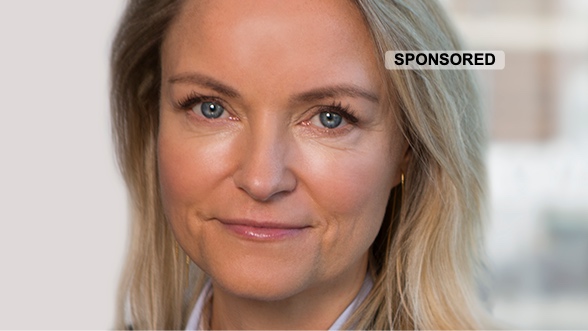VP Securities’ migration of securities settlement in Danish Kroner (DKK) to TARGET2-Securities (T2S) was an important step towards making the Danish market an integrated part of the European capital market infrastructure. This migration opens up an opportunity to make it easier for international investors to access the Danish market. However, to take full advantage of this opportunity, we need to have a more efficient post-trade model.
Since the beginning of the year, VP has worked together with external consultants and Danish financial institutions to adjust VP’s post-trade model to bring it more in tune with the European market. That project, known as the Future Model, is now complete and ready for implementation.
In this interview, Maria Hjorth, Deputy CEO at VP Securities, outlines the changes to VP’s post-trade model going forward.
Why is there a need for a new post-trade model?
This is really a natural consequence of migrating to the T2S platform. It made sense to examine our post-trade model more in order to harmonise it with international standards so we can adapt it to international investors. To do that, we started a project called “Future model”, which might be a bit grandiose when you compare it with the actual first step.
So what changes can investors expect to see with this new model?
There are two basic changes. First, we have separated the professional investor flow from the retail investor flow. Going forward, all professional accounts will reside on the T2S platform, while retail accounts will remain on the VP platform. The second change is that we are harmonising the identification methods used so that we get a workflow that better suits the European markets.
What will these changes mean for market participants?
This is about harmonising and standardising the Danish market, so market participants won’t have to adapt their approach to national market standards. As a result of these changes, they will be able to approach the Danish market in the same manner in which they approach the other markets on the T2S platform.
What’s the timeline for these changes?
We are keenly aware of the fact that that all parties involved have to be ready before we can go live. We also want to make sure that each change is thoroughly tested before it is implemented. And we will be involving all parties in the development and testing phases to make sure the implementation goes as smoothly as possible. We are planning a number of smaller releases and a final deadline for the new post-trade model is currently expected to be around Q3 2021.
What do you hope to achieve by making these changes?
For us, this is another step towards bringing the Danish market more in line with international standards and ultimately make the Danish market more attractive for international investors. When we migrated to T2S, we became part of a larger community, and it only makes sense to leverage that. Being part of a European platform offers a number of advantages in terms of scalability and gives us the opportunity to cooperate more closely with the rest of Europe. But in order to be able to do that, we need to have an infrastructure that matches the European one, so we avoid merely adding complexity.
The implementation of the new post-trade model is a part of a larger shift in VP’s overall strategic direction. The new direction will see VP expand its current portfolio of services to be able to offer even more value to VP’s partners and customers.
Get to know Maria Hjorth
Maria Hjorth joined VP Securities as Deputy CEO in February 2019. In addition to increasing VP’s commercial focus, Maria Hjorth is looking at ways to build data-driven business models and examining how VP can help the financial sector to innovate existing business processes.
She joined VP Securities after five years as CEO of Mercer Denmark, where she helped the company increase its revenue, profitability as well as customer and employee satisfaction. Maria Hjorth has also worked in investor relations at Danske Bank, and has had a number of managerial roles within corporate banking and business development.
Maria Hjorth holds an MSc and a BSc in Economics from University of Copenhagen, and an MSc in Business Psychology from University of Westminster in London.












